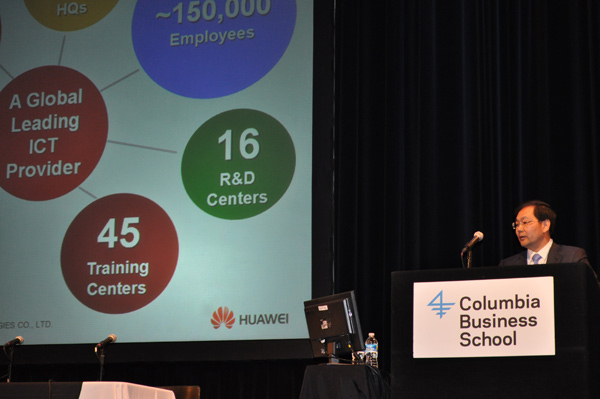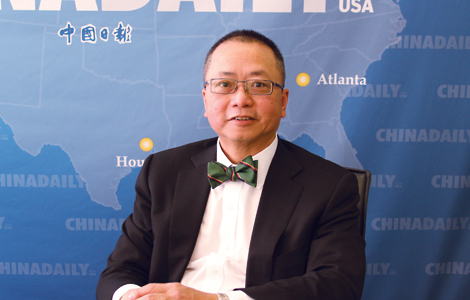Huawei executive says it still seeks US sales
Updated: 2014-04-26 06:10
By MICHAEL BARRIS in New York (China Daily USA)
|
|||||||||
"I object to the way Huawei was treated in the United States because it's unfair," said Owens, who commanded the US Sixth Fleet in 1990 and 1991 during Operation Desert Storm, and is vice-chairman of the New York Stock Exchange for Asia.
The October 2012 report by the US House Intelligence Committee panel accused Huawei and fellow Chinese telecom ZTE Corp of stealing intellectual property from US companies and said their equipment, when employed by US companies, could become a vehicle for Chinese spying in the US. The panel's report urged US carriers to stop doing business with Huawei and ZTE.
The companies rejected the report's claims as unfounded and launched aggressive global campaigns to counter the report's conclusions. A White House-ordered review found no concrete evidence to support the House report's espionage allegations.
The fallout from the report hampered the companies' efforts to establish their US credentials and expand into developed markets. Executives with Huawei, the world's second-largest supplier of network gear by revenue, later said the company would reduce its investment in the US equipment market to seek expansion in other markets, although it said it would focus on selling mobile phones in the US.
Even before the report, the US accounted for a mere $1.3 billion of Huawei's estimated $35 billion in 2012 sales. Customers such as Colorado-based Level 3 Communications, a major US broadband network operator, had bought an estimated $200 million in optical networking gear from Huawei since 2009, Bloomberg News reported.
Huawei recently entered the smartwatch market, tapping into a growing field as the crowded phone market reaches a saturation point.
"When you look around us, everything is getting connected," Huawei consumer-business unit vice-president Colin Giles was quoted by Agence France-Press. Giles said the group was taking early steps in the US to build better relationships with mobile operators and directly with consumers via online shops. "We recognize that the US is a very competitive and very tough market for us," Giles was quoted by Reuters.
Earlier this year, in a story based upon documents leaked by US whistle-blower Edward Snowden, the New York Times reported that since 2007 the US National Security Agency operated a covert program against Huawei, involving breaking into Huawei's internal networks.
|
 Charles Ding, Huawei Technologies' chief US representative, describes the telecommunication gear-maker's global growth strategy at a China business conference held at Columbia University on Friday.(MICHAEL BARRIS/CHINA DAILY)
|

 Amazing manhole cover graffitos dazzle campus
Amazing manhole cover graffitos dazzle campus
 Cars with colorful cartoon drawings parade in Hangzhou
Cars with colorful cartoon drawings parade in Hangzhou
 Young laborers shun tea harvesting
Young laborers shun tea harvesting
 Old US nuclear explosion images released
Old US nuclear explosion images released
 Ballerina-to-be in audition
Ballerina-to-be in audition
 Red alert for rainstorm issued in S China's Liuzhou
Red alert for rainstorm issued in S China's Liuzhou
 Forest team tackles fire drill in NE China
Forest team tackles fire drill in NE China
 'Global citizen' becomes head of C-100
'Global citizen' becomes head of C-100
Most Viewed
Editor's Picks

|

|

|

|

|

|
Today's Top News
Rethinking ink
Chinese comedian gets Broadway laughing
Farewell held for Xu
China will not be 'intimidated': envoy
Dominic Ng completes term as C-100 chairman
China seeks to resolve disputes through peaceful talks: ambassador
Huawei executive says it still seeks US sales
US TV series ordered off China's video sites
US Weekly

|

|






